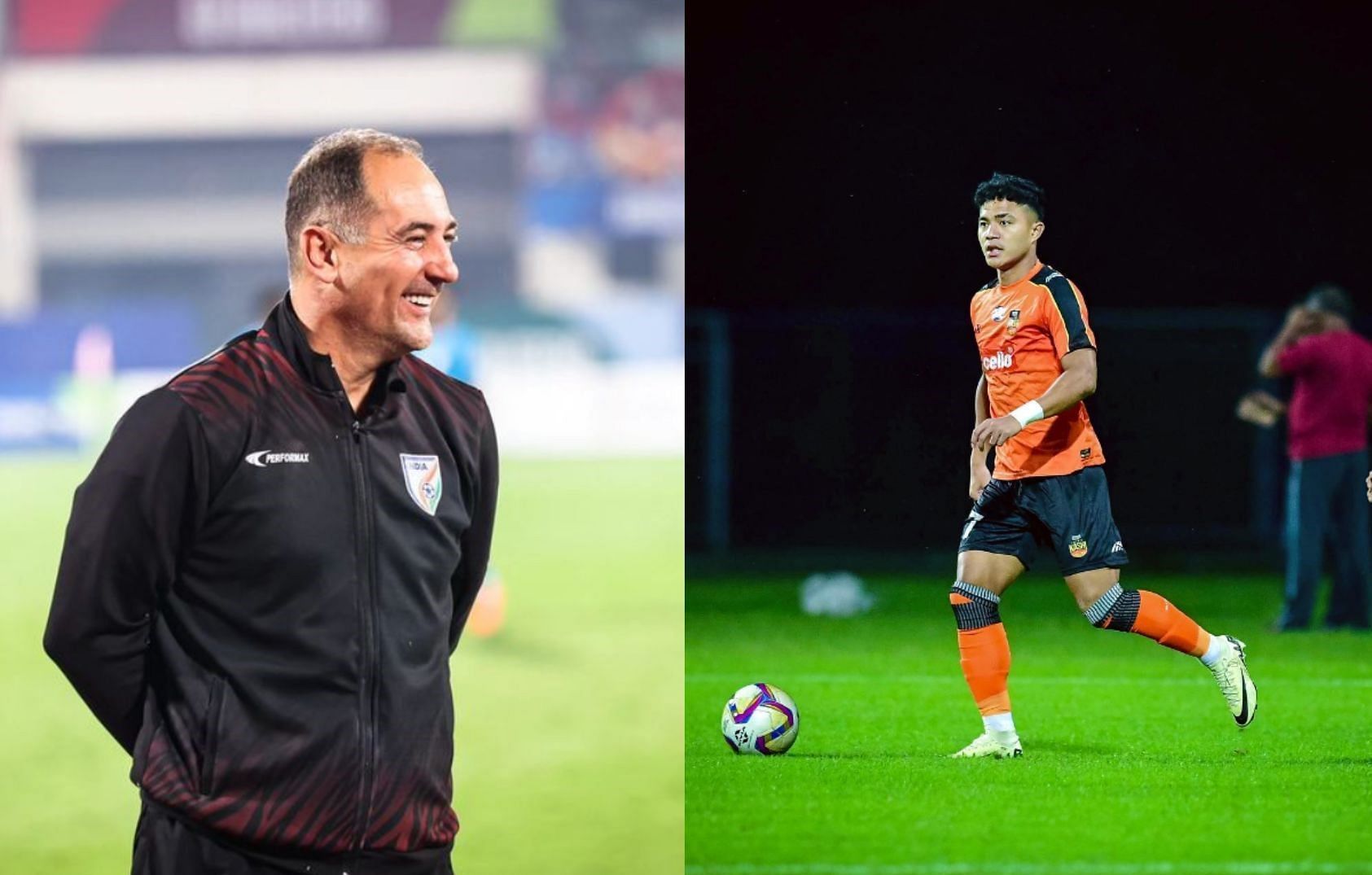
Former Indian coach Igor Stimac lavishes praise on Edmund Lalrindika, highlighting his 'fearless' approach to the game
It’s been a few days since Igor Stimac and the All India Football Federation (AIFF) began their ongoing back-and-forth following the AIFF’s announcement of Stimac’s departure. The Croatian coach has spoken publicly yet again about Indian football, this time addressing the continuous search for Sunil Chhetri’s successor.
On the Chakde Football Podcast, Stimac discussed various aspects of Indian football and elaborated on India’s struggle to find a number nine. He highlighted the lack of quality players in that position and emphasized that players need time to adapt because they don’t typically play as center-forwards at their ISL clubs.
"Our goal-scoring was terrible. You could clearly see it in training sessions how they have a low understanding in front of the goal. The decision making is poor. It’s all about training, about playing and getting used to that position and find yourselves in certain areas of the pitch and certain moments," Stimac said.
However, Stimac was quick to highlight the impact of Inter Kashi’s Edmund Lalrindika, who had an impressive season in the I-League. The 25-year-old scored four goals and provided eight assists, while his performances and high training standards earned him a debut for the national team against Kuwait in June.
"Edmund was a different class and was the one who impressed me the most. From all the boys I had in these five years, he was the one who had the greatest impact in the first few days. It was already clear that during the tests; he was top five in all of it. He had a totally different approach and attitude to the game," he added.
The 56-year-old coach also praised Edmund for his move to Canadian club Atletico Ottawa, where he is set to train this season and sees plenty of potential in him.
"His decision to not to accept offers from ISL, but to take the offer to play abroad instead of getting stuck in ISL is a clear sign of the hunger and the challenge he is ready to put. The thing I noticed is his psychological growth is fantastic. That’s the kind of character you need for the national team. He’s fearless, his technique is very good and he just needs more games to improve," Stimac further said.
Are high salaries affecting Indian football? Delhi FC owner Ranjit Bajaj weighs in
Joining Igor Stimac in the podcast was Ranjit Bajaj, the former Punjab FC owner and current owner of I-League club Delhi FC, who has often been outspoken about the growth, or lack thereof, in Indian football.
When asked whether high salaries in the ISL are affecting the quality of football in the country, Bajaj quickly pointed out that players are reluctant to take risks and play abroad because they are content to remain in their comfort zones.
"Players hate me for this. None of my players will think of going abroad. Why? Number one, they are superstars here and that’s the glamor part. Second of all, they won’t get five to seven thousand dollars playing in second or third division in Europe. Unfortunately, that’s what the level of these boys are, even the best. So, who will take that risk?" he said.
He also cited the example of Gurpreet Singh Sandhu, who played for the Norwegian club Stabæk and became the first Indian player to play for a top-division European club, as to why Indian players have failed to develop compared to other countries.
"Gurpreet Singh Sandhu took the risk, but he went back to Bengaluru FC and he didn’t even think about it twice. He was one of the top keepers when he just came. But because of the difference in training intensity, I’ve not seen Gurpreet be the same guy anymore because he’s not being challenged. Unless we see 10 Indians playing in the UEFA Champions League or Europa league, we will not see India in the World Cup," Bajaj added.
This is a topic worth debating, as Indian football faces another period of stagnation following their disappointing exit from the 2026 FIFA World Cup qualifiers. While there are glimpses of promise, progress in Indian football certainly feels like one step forward and two steps back.